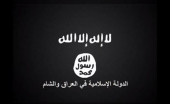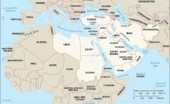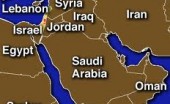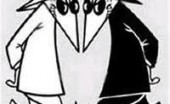Johannah Bernstein post: "eternally proud of my father’s extraordinary aeronautical engineering. legacy. here is a photo of the Canadair Water…
State of the Union 2008
Written by Diana Thebaud Nicholson // January 28, 2008 // Economy, Environment & Energy, Geopolitics, Politics, U.S. // Comments Off on State of the Union 2008

January 31
(The Economist) The disappearing president and the shape of politics to come
George Bush gave his last state-of-the-union speech, in which he touted progress in Iraq and called for an additional $30 billion for AIDS relief in Africa. He also urged Congress to pass quickly a $150 billion economic stimulus package to ward off a recession. The House promptly did so, but some senators asked for extra provisions, mainly for the elderly. See article
January 29
WASHINGTON (CNN) — President Bush used his final State of the Union speech to call for a quick shot in the arm for the economy in “a period of uncertainty” and tout last year’s progress in the Iraq war.
Highlights:
Pass $150 billion stimulus package to address economic concern
Bush vows to veto bills that don’t cut earmarks, wants tax cuts made permanent
Bush touts troop escalation, says “enemies in Iraq have been hit hard”
Congressional Democrats say Bush proposals “too small,” vow to cooperate.
Bush, Facing Troubles, Focuses on War and Taxes
WASHINGTON — Facing an unstable economy and an unfinished war, President Bush used his final State of the Union address Monday night to call for quick passage of his tax rebate package, patience in Iraq and a modest concluding agenda that includes $300 million in scholarship money for low-income children in struggling schools.
With Senate Democrats already jockeying to amend the stimulus package that the administration negotiated with the House last week, Mr. Bush, in his address, urged lawmakers to resist the temptation to “load up the bill” with other provisions. To do so, he warned, “would delay or derail it, and neither option is acceptable.”
Yet Mr. Bush devoted relatively little of his 53 minute speech to the economy, the issue that is the top concern of voters during this election year. He spent far more time talking about the issue that has been his own primary concern, Iraq.
(BBC) Although most presidents would use their (probable) last State of the Union to burnish their legacy, Mr Bush seemed acutely aware that as the most controversial US president in recent years, it was perhaps best to steer clear even of the word itself.
January 28
President Bush Delivers State of the Union Address (The White House, Official Text)
According to a Reuters report by Tom Doggett, Bush to commit $2 billion to climate change fund
WASHINGTON (Reuters) – The United States will commit $2 billion over the next three years for a new international fund to promote clean energy technologies and fight climate change, President George W. Bush will tell Congress on Monday in his annual State of the Union speech.
“Let us create a new international clean technology fund, which will help developing nations like India and China make greater use of clean energy sources,” Bush said in excerpts of his speech released by the White House.
Bush said the United States is committed to working with major economies and the United Nations to complete an international agreement that “has the potential to slow, stop and eventually reverse the growth of greenhouse gases.”
“This agreement will be effective only if it includes commitments by every major economy and gives none a free ride,” Bush said.
January 27
In State of the Union familiar will trump bold
Bush’s final State of Union to focus on economy, with no major proposals
WASHINGTON – In a bow to political reality, President Bush’s final State of the Union speech will skip bold proposals in favor of ones the country has heard before, a modest approach for a White House that prides itself on big ideas.
Unfinished business
The economy will be a dominant theme, offering Bush one more chance to reassure a jittery nation that better days are ahead. He will start off with domestic matters and then move into foreign policy in a speech to run about 45 minutes, roughly in keeping with the length of his past addresses.
There’s not much panache in rehash. But the White House line is that important ideas don’t lose value just because they haven’t been enacted.
Bush will ask Congress to make permanent the tax cuts that are set to expire in 2010. He will prod Congress to extend a law allowing surveillance on suspected terrorists, renew his education law and approve free-trade pacts with Colombia, Panama and South Korea.
He is also likely to recycle ideas on alternative energy, affordable health care and housing reform.
Financial, international concerns
Just in time, House leaders and Bush have reached a deal to put money in people’s pockets and pump up the economy. Bush could use his speech to nudge it along and hail a rare bipartisan partnership.
Shifting to foreign affairs, Bush will promote the U.S.-backed Middle East peace effort and his administration’s efforts to fight disease and hunger.
On Iraq, Bush is expected to tout security improvements and restate that more U.S. troops will come home only as conditions merit. Given the military progress there and the Democrats’ inability to force a change in strategy in 2007, he is in a different position this time around.
Lame duck politics
His mission is to chart a course for what’s left and remind people that, yes, he’s still here and engaged. He was written off as a lame duck last year but then used his veto authority with great success, staying relevant and forcing changes in legislation.
The legislative calendar is considered even shorter this election year. And despite a sudden interest in cooperation on the economic boost, Bush and the Democratic Congress are at odds on most matters.
Attention is fleeting. Within a matter of weeks, Republican Party voters will likely choose a new face for their party. Even those who pay modest attention to politics are interested in whom the next president will be. Mere hours after Bush’s speech, the media focus will be on Tuesday’s Florida primary.



